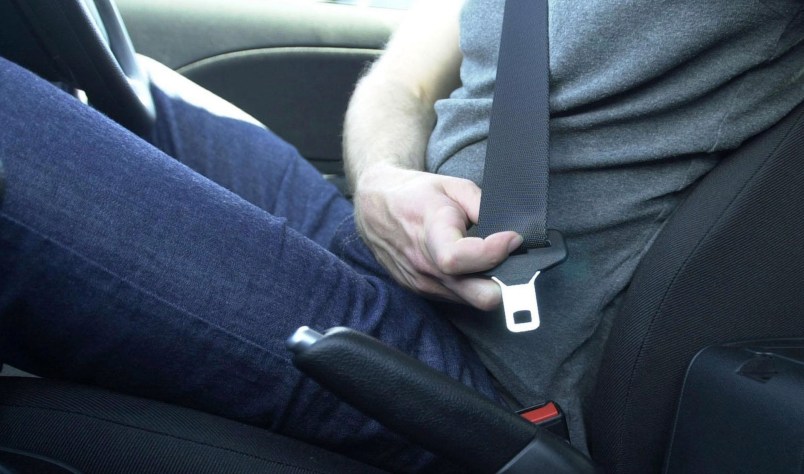AUGUSTA, Maine (AP) — It’s an effort that even the bill’s sponsor acknowledges is poor timing.
Just two days after a 75-vehicle pileup injured at least 17 people in the state, lawmakers in Maine are considering legislation that would allow adults to opt out of wearing seat belts.
Sen. Eric Brakey told lawmakers on Friday that it’s too bad they’re considering his bill so close to Wednesday’s crash on Interstate 95, which is thought to be largest in Maine history but had no fatalities.
“It’s very unfortunate timing that we’re discussing this particular legislation two days after the 75-car pileup that took place on I-95,” Brakey said.
The Republican from Auburn acknowledged that people should wear seat belts and said he hopes the accident serves as a reminder of the importance to do so. But said he believes the mandate infringes on people’s freedom to make personal decisions.
“Government exists to protect us from each other, not to protect us from ourselves,” Brakey told the Transportation Committee, which also examined measures Friday that seek to crack down on people who talk on their cellphone while driving.
Opponents of the seat belt repeal — including the Maine Sheriffs’ Association, Maine Chiefs of Police Association, the Maine Medical Association and several trauma surgeons — argued that repealing the law would be a dangerous move that would inevitably lead to more highway deaths.
“We’re asking people to swap an immediate lethal risk for the threat of a small fine,” said David Burke, a surgeon at Eastern Maine Medical Center. “If that helps keep a few dozen per year out of my trauma room, I’ll take the governance.”
If the bill passes, Maine’s Bureau of Highway Safety would lose almost $500,000 a year in federal grants that pay for educational programs and child safety seats for low-income families, said Director Lauren Stewart, who also opposes the bill. The federal government encourages states to enact certain highway safety laws by tying some funding to them.
Neighboring New Hampshire is the only state that doesn’t mandate seat belts for adults.
The committee also heard testimony on bills that would ban drivers from using hand-held cellphones. Maine now bans distracted driving and texting while driving.
Critics called the cellphone proposal unnecessary, an overreach of government and questioned whether it would be effective.
But Republican Sen. Roger Katz, whose bill would allow people to use hands-free devices, rejected the notion that the proposal is just “another example of intrusion into our personal lives.”
“If you chose to put yourself in harm’s way, that’s one thing. … But when the danger and harm extends to others, then that’s a different story.”
___
Follow Alanna Durkin at http://www.twitter.com/aedurkin
Copyright 2015 The Associated Press. All rights reserved. This material may not be published, broadcast, rewritten or redistributed.







They can take away our cellphones while driving, but they can never take our FREE DUMB!
Not likely to happen. The Insurance companies will pitch a bitch and the politicians will cave.
Sure, so do laws that require babies to be in car seats, laws that say you can’t drive drunk, building codes that specify safety features like smoke detectors and stair railings and minimum roof load, and laws that say you can’t have open unconstrained fires in your back yard. Just really dumb Luddite logic!
Growing up, dad always claimed that a seafood diet promoted healthy brain function. Maybe the folks in the state house and those that have elected them should give it try given the lunacy dominating the political process in those parts.
Doesn’t harm others? They must hate their first responders.